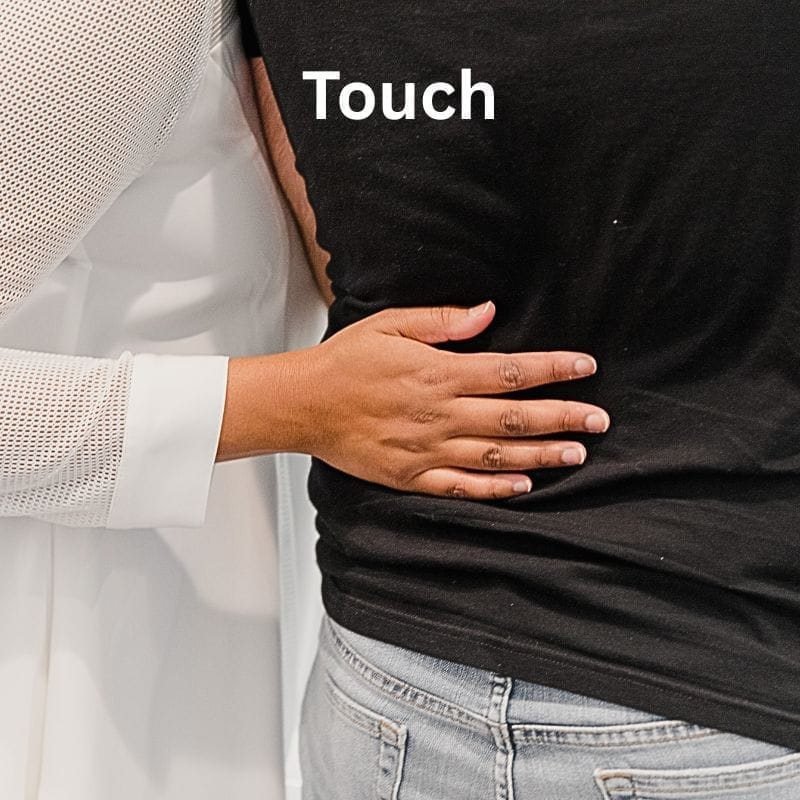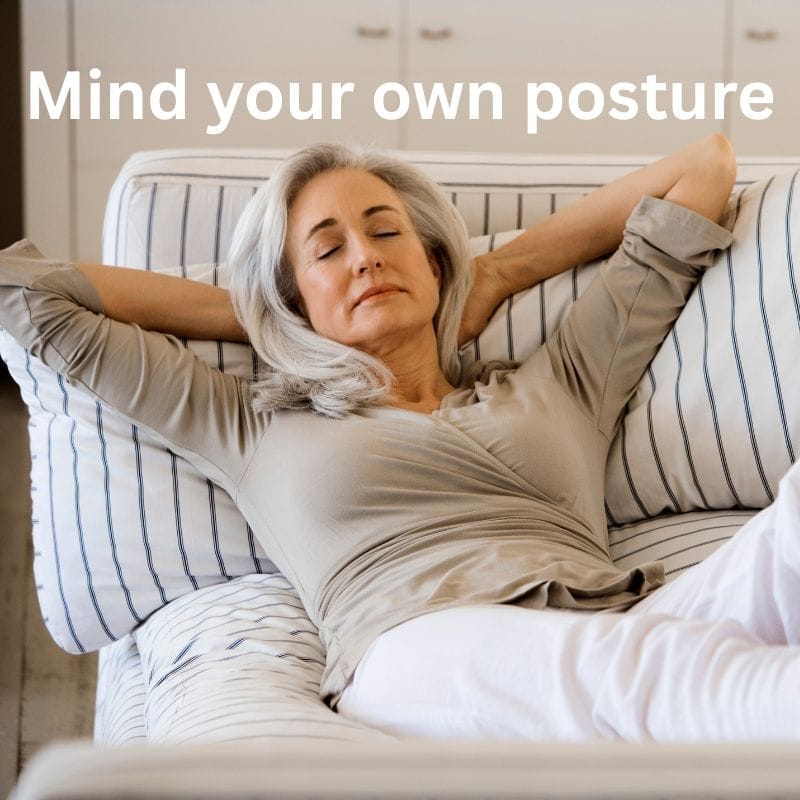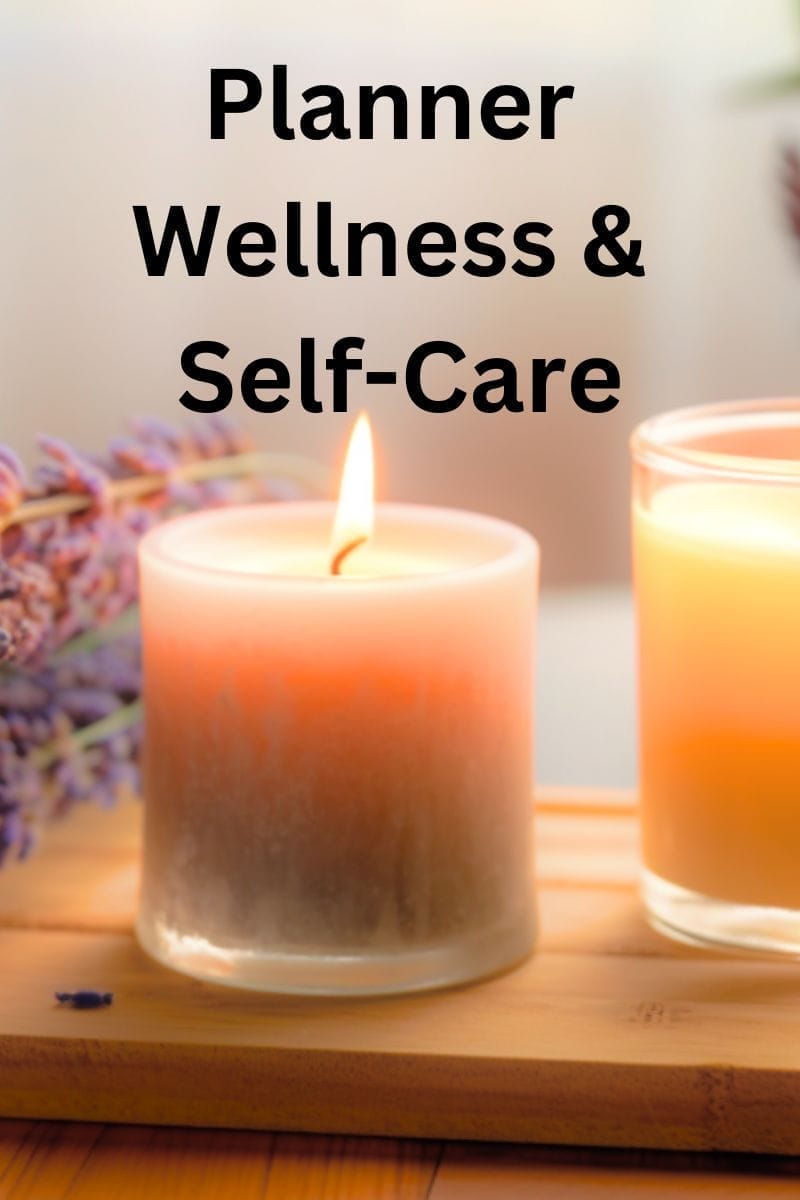Your Senior Journey
Your Senior Journey
He’s Not Saying It - But His Body Is: Body Language Signs of Love (or Distance) After 50
Hello ladies, and welcome to ‘He’s not saying it - but his body is: body language signs of love (or distance) after 50.’ You’ve noticed it - the subtle shifts in his behaviour. The lingering hugs have shortened, eye contact is fleeting, and conversations feel more like monologues. You might wonder, Is he pulling away? Or is this just a phase?
You’re not imagining things. Men often express affection differently as they age, influenced by factors like stress, health, or emotional changes. But these shifts don’t have to signal the end. Understanding his body language can offer insights into his feelings and guide you toward reconnection.
How Do You Know If Your Partner Still Loves You? How Midlife Changes Affect Communication
After 50, life looks different. The house is quieter, routines are set, and without the daily chaos of kids, every little gesture - or its absence - feels magnified. A fleeting glance, a missed touch, or longer silences can suddenly feel huge.
Some men become less outwardly expressive, not because love has faded, but because they process things differently in midlife. And yet, this is exactly the time when touch, attention, and warmth matter more than ever.
Many women tell me they feel that missing closeness more sharply now, because with the house quieter, the focus is fully on the two of you. If you’re not getting closeness, it can leave you feeling lonely, invisible, or questioning whether he still cares.
IS HE REALLY PULLING AWAY - OR JUST COMMUNICATING DIFFERENTLY?
Understanding Male Communication Patterns in Midlife
Studies show that men are often less verbally expressive than women, and midlife doesn’t magically change that. As men enter midlife, their communication styles can evolve due to various factors such as hormonal changes, shifting priorities, or increased responsibilities. Some men also suppress emotions more strongly because of cultural expectations - a concept known as male normative alexithymia.
That doesn’t mean he loves you less. It might mean he’s more inward, less talkative, or less likely to initiate affection. Instead of jumping to conclusions, it helps to step back and notice the bigger pattern: Is he still present in other ways? Does he still show up when you need him?
Societal expectations and traditional gender roles can discourage men from displaying vulnerability or emotional openness.
It's important to recognize that a change in communication doesn't necessarily signify a loss of affection or commitment. Instead, it can mean he just has a different approach to processing and expressing emotions. Understanding this can be your way in not jumping immediately to conclusions and to have empathy towards his behaviours.

Avoiding Personal Blame
It's natural to question your role when you sense a change in your partner's behaviour. However, it's crucial to remember that his altered communication style isn't a reflection of your worth or the quality of your relationship.
This part is important: his behaviour is not a reflection of your worth. Self-blame is a trap - and it solves nothing. You are where you are. If something feels off, it doesn’t mean you’ve failed - it’s simply a chance to look at your relationship with a little more compassion and curiosity.
Think of it this way: signs of emotional distance aren’t always a dead end - they can be a doorway. They show you where something in the relationship could use more presence, attention, or even a fresh approach. This isn’t about guilt or thinking you’ve done something wrong. It’s about recognizing what’s really happening and deciding how you want to respond.
Remember, love after 50 isn’t about going back to who you were years ago - it’s about growing into who you are now, together. When you bring awareness instead of self-blame, you not only strengthen the relationship, you also stand more firmly in your own confidence and clarity.
WHAT HIS BODY LANGUAGE MIGHT BE SAYING
Body language in long-term relationships often speaks louder than words - but it can be tricky to interpret. A crossed arm or a distant glance doesn’t always mean rejection; sometimes it’s just stress or distraction. While your intuition can guide you, it’s not always perfect - pay attention to the signals and the bigger patterns over time. Research even shows that non-verbal cues can predict relationship closeness, highlighting just how much our bodies communicate about connection.
Understanding his signals can take the guesswork out of what’s really going on. Here are a few common signs and what they might mean (always look at patterns, not just one-off moments):
Signs of Love and Closeness
Leaning toward you – shows interest and emotional presence.
Gentle, frequent touches – like brushing your arm or holding your hand, often signal affection.
Eye contact with a soft gaze – means he’s listening and tuned in.
Relaxed shoulders and open posture – he feels comfortable and safe around you.
Signs He Might Be Distant or Preoccupied
Turning his body away – could mean distraction or emotional withdrawal.
Crossed arms or avoiding eye contact – may show discomfort, defensiveness, or stress.
Fidgeting, looking at phone, restless movements – he might be mentally checked out or anxious.
Tense jaw or tight shoulders – could signal unspoken frustration or worry.
A quick reminder: “One sign on its own doesn’t mean trouble - but repeated patterns are worth noticing.”
Mirroring or the Lack of Mirroring
When couples are in sync, we unconsciously mirror each other’s expressions and movements. After 50, you might notice he no longer mirrors your smiles or gestures. If you smile and he doesn’t return it, that mismatch can hurt.
However, this could be a sign of him needing space to process his feelings. you can often re-open the channel by keeping your own body language warm and open - it sends the message, ‘I’m here, and you’re welcome to be here too.
Emotional Flatness or Indifference
If he seems emotionally distant or indifferent, it can be painful. Yet, this doesn't always indicate a loss of love. He might be dealing with personal issues that are affecting his emotional availability. Either way, your awareness gives you a chance to respond with care.
HOW TO RESPOND -
BODY LANGUAGE THAT REBUILDS CONNECTION
You don’t always need a “big talk” to shift the energy in your relationship. Sometimes, the smallest gestures speak louder than words. Non-verbal cues can open doors to reconnection, showing him you’re present, engaged, and ready to share closeness.
Lead With Your Own Signals
Your body language sets the tone. Keep your posture open, maintain gentle eye contact, and offer small touches - like a hand on his arm during shared routines. These cues signal that you’re approachable and create a safe space for him to express himself without pressure.
Small Gestures That Make a Difference
Simple actions can do wonders. Smile, lean in while talking, or mirror his movements subtly. Invite him into shared activities - like a walk, cooking together, or gardening - where connection happens naturally. Even small touches during these moments, like brushing his arm or leaning closer, can speak volumes.

Mind Your Own Posture
Even in tense or uncertain moments, your body can communicate openness and warmth. Straighten your shoulders, soften your gaze, and relax your stance. These subtle shifts encourage him to mirror your energy and re-engage naturally.
Stay Patient and Observe
Notice how he responds without pushing or overthinking. Connection often grows quietly, in these small moments, rather than in dramatic gestures or long talks.
Honour Your Own Boundaries
Being open doesn’t mean ignoring your own needs. You can show love and warmth while protecting your limits. Connection works best when you feel safe, respected, and cared for - emotionally as well as physically.

WHEN TO TALK - AND WHEN TO JUST BE
Not every silence needs filling. Sometimes, just sitting together, sharing a coffee, or working side by side is enough to feel close. Words aren’t always required - your presence can be the connection.
Pause and Check In
Before you speak, take a moment to breathe and notice what’s happening - both in him and in you:
Is he relaxed and present, or distracted and tense?
Is this a calm moment where he can truly hear you?
Am I speaking from care and curiosity, not frustration or fear?
These little check-ins help you share what’s on your heart without creating unnecessary tension.
WHEN YOU ARE UNSURE IF THERE IS A "PROBLEM”
This is where many of us start overthinking. If something feels off but he says there’s no problem, it can leave you wondering if you’re imagining things.
When He Says There’s Nothing Wrong (or brushes it off):
"I’m fine."
"Nothing’s wrong."
"You’re overthinking it."
"It’s not a big deal."
"I’m just tired."
When There Might Be Something Wrong (but he won’t go into it):
"Can we not do this right now?"
"I just need some space."
"Why are you making a big deal out of this?"
"Nothing. Just leave it."
"I said I’m fine." (but tone is sharp or distant)



Here are some ways to sort it out:
Look for patterns, not one-offs: One distant evening doesn’t mean disconnection - but repeated withdrawal might deserve a gentle conversation.
Notice his reaction: If he reassures you but seems calm and consistent later, trust that for now. If his reaction feels defensive or overly reactive, that might be a clue that something is stirring under the surface.
Check in with yourself: Ask yourself, “Am I looking for reassurance, or do I truly sense a change?” This self-awareness can guide whether to speak or let it go.
Remember every man is different: Some men process internally and need space before they open up. Silence doesn’t always mean trouble - sometimes it means he’s simply recharging.
Keep the Door Open With “I” Statements
When you do speak, make it about your feelings rather than his behaviour. For example:
“I felt a little disconnected when we didn’t hold hands tonight - I missed that closeness.”
“I noticed we didn’t talk as much during dinner, and I felt a bit alone - I’d love more moments like that.”
These gentle statements keep the door open for connection, without making him feel attacked.
Connection Over Confrontation
Your goal isn’t to prove something is wrong - it’s to invite closeness. If tension shows up, take a pause. Sometimes simply being present, without words, gives him space to meet you halfway. When you do speak, keep your tone warm and curious, so the conversation becomes a bridge rather than a wall.
FOCUS ON YOUR OWN WELL-BEING
This might be the most powerful step of all. Your happiness matters - not just for you, but for the health of your relationship. When you engage in things that bring you joy, you radiate confidence and vitality. And yes, men notice that.
If you’re in a relationship where love feels one-sided (for example, if you’re married to a narcissist), then your well-being is non-negotiable. You cannot pour from an empty cup.
Honour Your Limits
Trust your gut feelings, but don’t forget your own boundaries. If you keep feeling ignored or hurt, it’s okay to say what you need and set limits. Loving him doesn’t mean ignoring yourself – it’s about caring for yourself while staying connected.

Bonus Tip: Wellness Planner
With my FREE Wellness & Self-Care Planner, you can focus on gentle goals that nourish both body and mind. Taking care of yourself naturally supports your confidence – and that ripple effect strengthens your relationship too.
Explore ways to feel strong and fulfilled:
Mastering the Growth Mindset (I highly recommend Mindvalley, which I’m proudly affiliated with - see below
Want Deeper Transformation?
I tried all the usual “fix yourself” stuff. Nothing really clicked - until I focused on mindset. That’s when everything changed.
Mastering the Growth Mindset is a premium 6-day program that can help you let go of old patterns, rewire limiting beliefs, and build true resilience - without burning out.
From self-pressure to self-trust: your glow-up starts within.
*Affiliate note: If you choose to purchase this program, I may earn a commission at no extra cost to you.
FINAL THOUGHTS - TRUSTING YOUR INTUITION ~
(AND LETTING GO OF GUESSWORK)
At the end of the day, recognizing signs of emotional distance is about balance. Don’t invent stories in your head, but don’t ignore your intuition either.
If something bothers you, speak it out - but do it in a way that keeps the door open. Using “I” statements isn’t just a communication trick, it’s a way of saying, “This is my heart speaking, and I want you to hear me.” For example: “I feel hurt when you look at your phone while I’m trying to talk, because it makes me feel unseen.” Or: “I would have loved it if you reached for my hand just then - I missed that connection.” These are not accusations; they are invitations.
And remember - body language doesn’t always mean what we fear it does. A sigh, a slouched posture, or less eye contact may not be about you at all. That’s why it’s so important not to fill the blanks with painful stories in your head.
What you can always do is tend to your own happiness. Work on how you respond, how you carry yourself, how you show love. When you shine from within, it often creates a ripple effect in your relationship. You can’t change someone else completely, but you can influence the atmosphere you both live in.
Some things in your partner may never change - and that’s okay. What matters is the love that can still grow between you, the small moments that remind you why you chose each other. Love after 50 can still surprise you, warm you, and deepen in ways you never expected. It’s about showing up - not perfectly, but fully, with an open heart and gentle courage.
Love doesn’t fade with age - it deepens when we keep choosing each other, day by day.
Stay Updated - Sign Up for Our Newsletter
Stay informed with expert advice for women over 50, right in your inbox. Join us!

Birgit is the heart behind Your Senior Journey, on a mission to prove that your 50s and beyond can be your most vibrant, fit, and emotionally fulfilling years yet. She doesn't just write about well-being; she empowers women to break free from the "juggle," reclaim their physical vitality, and build relationships that truly flourish.
When she isn't writing, Birgit finds joy in teaching the piano, nurturing her garden, and cherishing time with her family. These moments of creativity and connection bring depth to her work and fuel her passion for helping others thrive.
Your Senior Journey - Supporting women over 50 through life's changes with confidence and healthy living.
© 2026 - yourseniorjourney.com - all rights reserved.